EUSA Insider:
Dr Ally Forbes
Principal Investigator (PI) of the University of Wolverhampton (UK)
Published 20 June 2023
Dr Ally Forbes of the University of Wolverhampton (UK) is the Principal Investigator (PI) of a project aiming to develop female sports leaders across the UK and Malaysia. Dr Forbes working with Dr Selina Khoo from the University of Malaya and with partners the British Judo Association and the Olympic Council of Malaysia. The overarching aim of the project is to co-create a sports leadership training programme targeting thirty female sports students across the two higher education institutions. Participants will develop their leadership skills, competencies and confidence, with the programme preparing and supporting them to enter the sport industry workforce.
Tell us about who you are, your professional background and how you ended up leading this project?
The day job is the programme leader of the sport business management degree at the University of Wolverhampton. My research interests are gender equality, a little bit on race equality. I have started to take on different roles and responsibilities within the school and one of those was the lead for Athena Swan work which is linked to Advance HE and is essentially a charter mark award for institutions. It demonstrates that they are working towards or making progress with gender equality within their institutions and then within their schools or departments. In 2020 we submitted the application for the Athena Swan bronze award, and we found out in May 2021 that we were successful. We were the first school within the institution to achieve charter mark award. Later, the British Council call for funding came out and it was shared with me as something that was potentially of interest. From my experience that a lot of the challenges with leadership is a pipeline issue we decided that we wanted to do some work on leadership and developing leadership skills and competence ease with our students. Later, when they are entering the workforce, they feel better equipped to progress and develop their own leadership careers and hopefully shift the balance in terms of leadership positions in sport whether in academia or outside that are still very dominated by men.
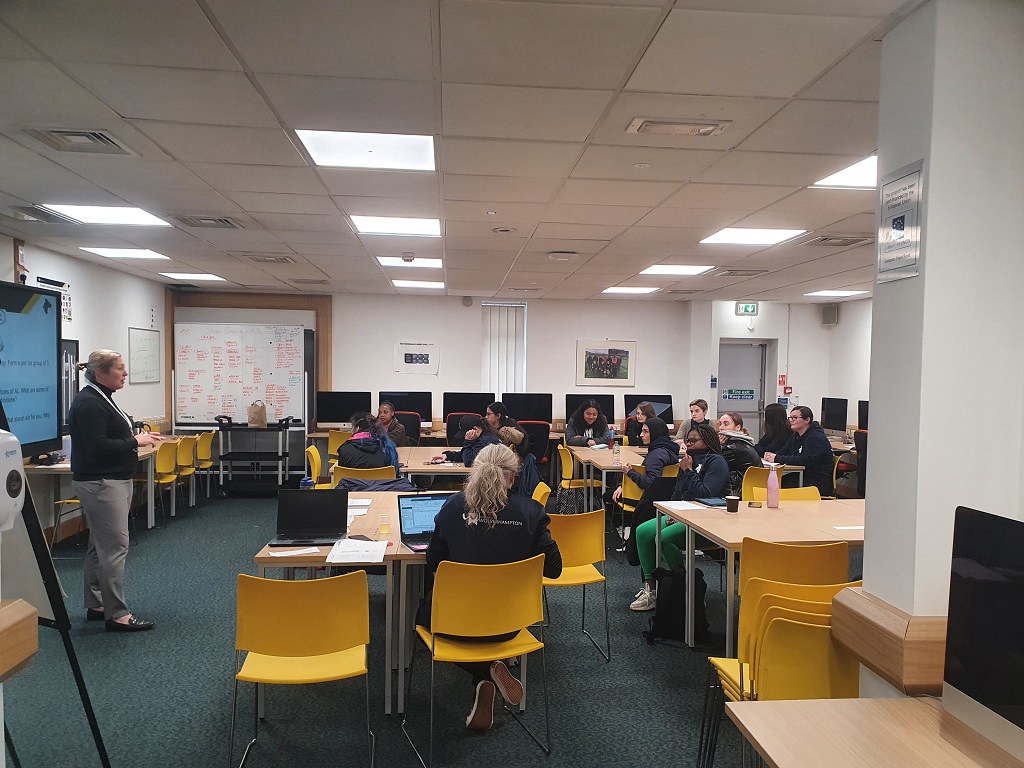
What the project is aiming to achieve?
It is titled “Female sports students as future leaders” and is trying to improve the confidence of our female sports students in areas linked to leadership. The students do the programme and then there is an exit route. British Judo Association and the Olympic Council of Malaysia support the programme. Those that want can do a placement within one of those two organisations and they would be mentored by a senior female colleague who is working within that organisation. The idea was that by doing the programme they would develop a kind of understanding of leadership and some of those competences and then the exit route was into a placement where they could try and put some of that into practice with our two national partners.
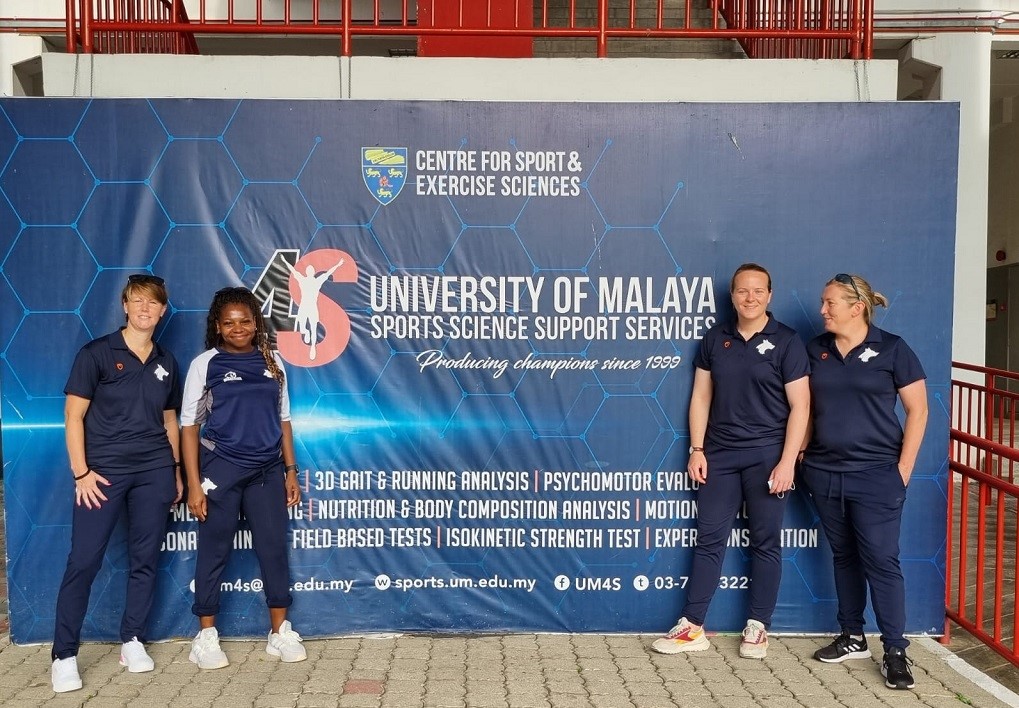
How's the project going?
It's going really well. One of the things that we were keen to do was to include students within it and allow the project to be shaped by female students. We recruited two student co-creators who were and remain part of the project team. We took a project team of three female academic staff members and our two student co-creators and went out to the University of Malaya, Kuala Lumpur and created the project through an intense three days. The programme is delivered through five workshops that cover the themes of exploring values of self and others; developing confidence to step outside their comfort zone; building relationships and growing a network; taking opportunities, building experience and selling yourself; diverse thinking and understanding unconscious bias.
The participants in the online sessions have heard from women working at all different levels of sports organisations. Among others, our contributors have been the Vice President of the Olympic Council of Malaysia and the Head of the Anti-Doping Agency of Malaysia. We have also had Asma Ali, Community Engagement Manager at England Squash; previously she was Engagement Manager at the Birmingham 22 Commonwealth Games. We have also had women who are earlier on in their leadership journeys, so that it did not feel like that was too far away for the students.
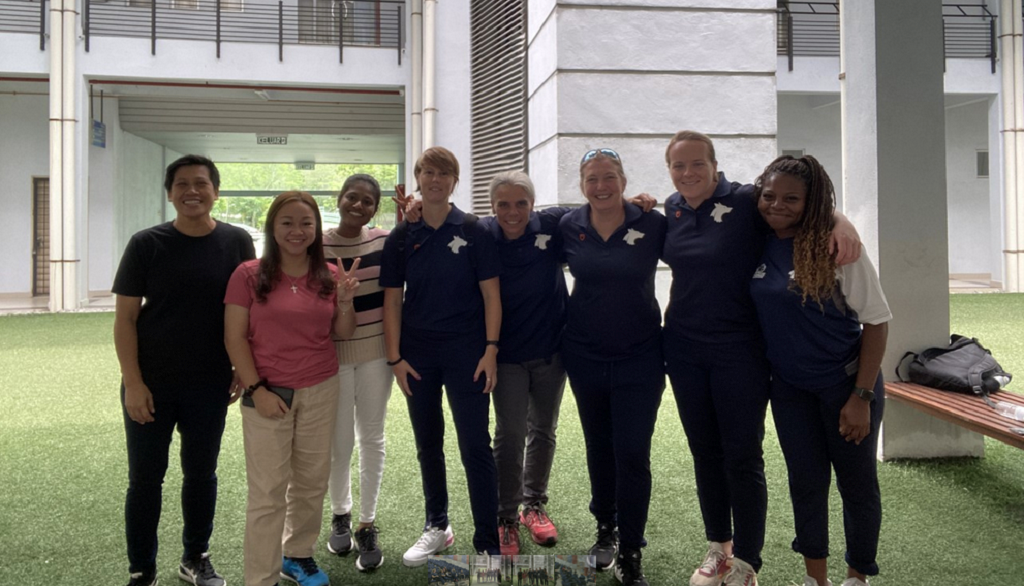
What are the participant’s motivations for engaging with the programme and what are they hoping to achieve from it?
The numbers at the sessions have been about 15 to 20 females from Wolverhampton. The impression I get from the participants is that they have enjoyed the workshops, they found particularly online sessions valuable in terms of getting to hear from women working in different organisations at different stages of their leadership career.
This is a project done in turn in tandem with Malaysia and colleagues and students in Malaysia. What do you think that uniquely brings to the project?
I think the real value of that kind of collaboration is that the students get a sense of the leadership challenges that exist in both locations. There are still challenges in terms women being underrepresented in senior leadership roles. It has been interesting for the students to get a global understanding that these are not just challenges unique to their own location. This is a global issue. It is not something that's just a western issue or the United Kingdom issue. It has been interesting learning about the cultural differences and how that changes, impacts or influences the women who are working in leadership positions and their experiences of leadership. For example, one UK participant is a Muslim female and she spoke about the challenges of people making judgements on her and her competence in sport because of how she presented herself, as a hijab wearing female; whereas the Muslim females who were Malaysian have not talked about any of those issues at all.
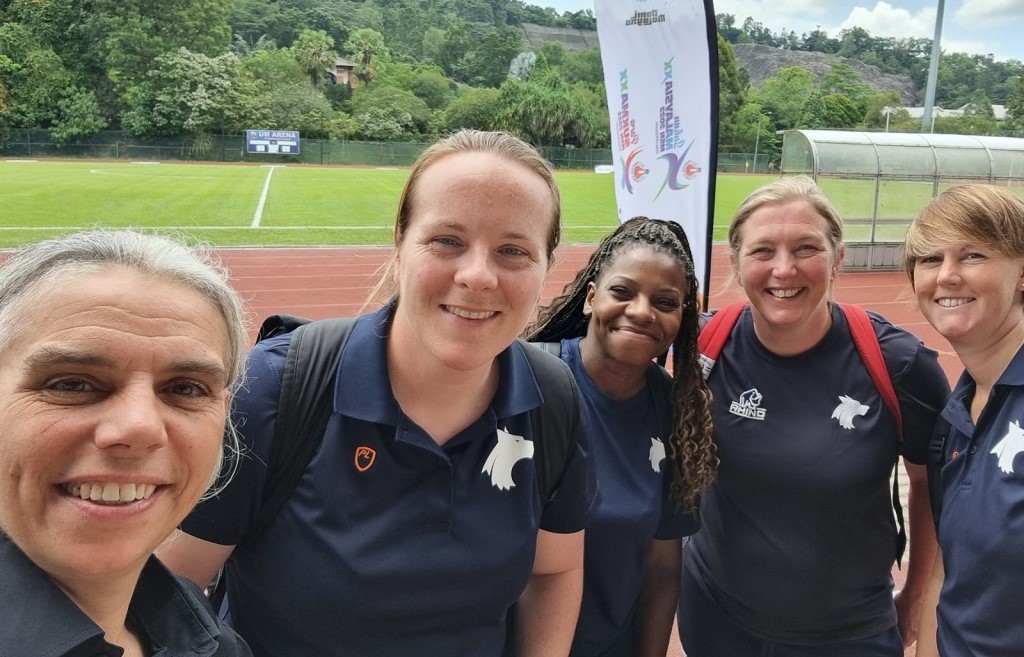
As an expert and a female leader in sport if you were to be able to express a call to action to European agencies about what they can do to promote women in leadership positions in sport what advice would you give?
There are two main issues. One of them is the leadership pipeline. The pipeline of people in your organisation or who might work in your organisation in the future and ensuring that they have the skills and attributes required to be successful in the leadership roles. In terms of a call to action I would encourage collaborative work between colleges, schools, universities. Those institutions that are preparing students to go into the workplace and sports organisations who are constantly seeking to recruit new members into roles. I think there is probably scope to work more closely together in that realm.
The call to action should also be an honest reflection of how effectively or how well you engage with equality, diversity and inclusion and how committed are you in diversifying your workforce. Is it a bit of a tick box or are you genuinely trying to learn, engage and develop.
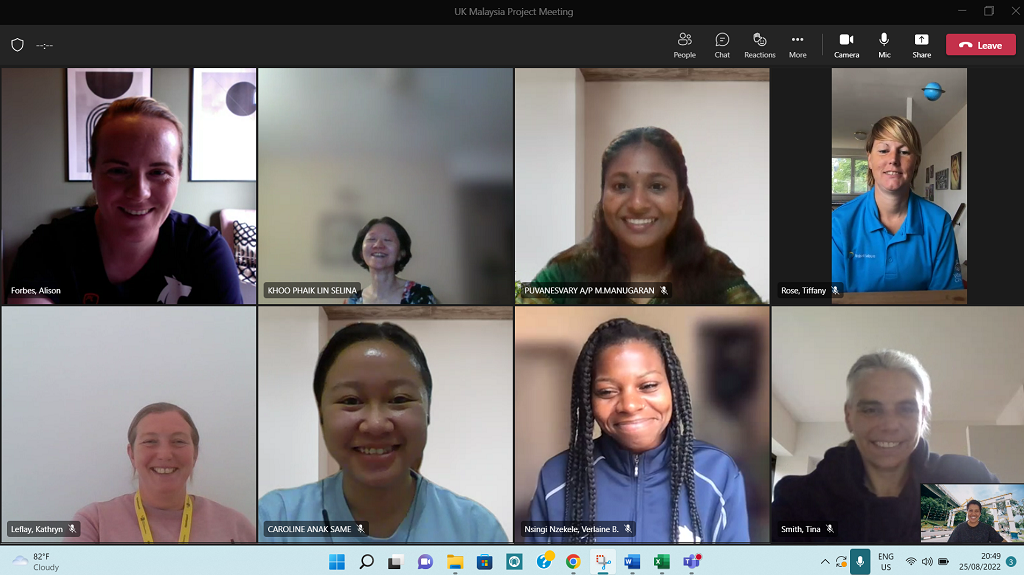
In terms of my own career, leading on the project it has been simple because it has been a supportive environment for me to take that step. Perhaps it's because we're a group of women and we're doing something linked to women's leadership and it's felt like that, but it has felt very collaborative and very supportive and that's been nice.
